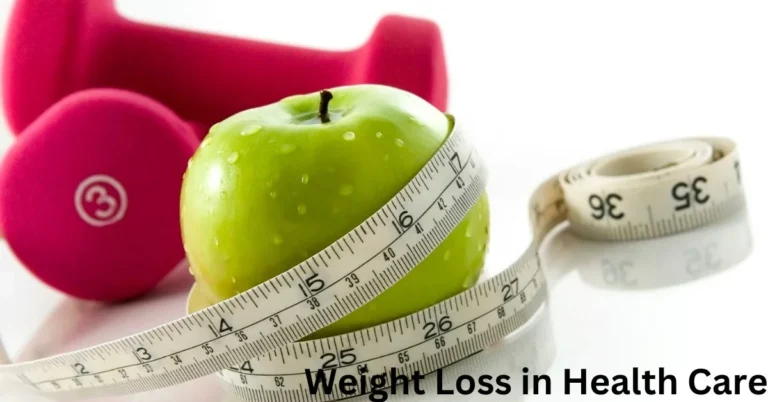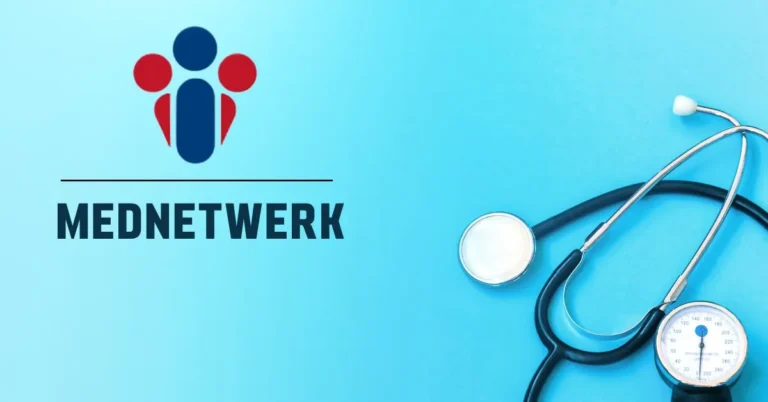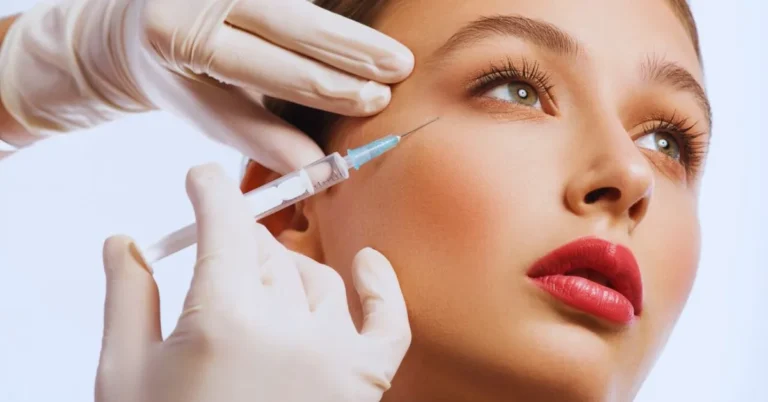Understanding HIV and Its Importance
Human Immunodeficiency Virus (HIV) is a virus that attacks the body’s immune system, specifically the CD4 cells (T cells), which help the immune system fight off infections. If left untreated, HIV can lead to Acquired Immunodeficiency Syndrome (AIDS), a condition where the immune system is severely compromised, making the body vulnerable to infections and diseases. HIV is primarily transmitted through unprotected sex, sharing of needles, blood transfusion with infected blood, and from mother to child during childbirth or breastfeeding.
Despite medical advancements, HIV remains a global health concern, and Singapore is no exception. While treatments like antiretroviral therapy (ART) can manage the virus effectively, early detection remains crucial. An HIV test is the first and most essential step toward managing the disease and preventing further transmission.
It’s not just about personal health—it’s also about protecting loved ones and the broader community. Many individuals live with HIV for years without symptoms, unknowingly transmitting the virus. Regular HIV testing, particularly if you’re sexually active or in a high-risk group, is essential in breaking this chain. The good news? Singapore has made significant strides in making HIV testing accessible, affordable, and anonymous.
HIV is not a death sentence. With timely diagnosis and proper treatment, individuals can live long, fulfilling lives. That’s why the importance of routine testing cannot be overstated.
Why Getting Tested is Crucial
When it comes to HIV, knowledge truly is power. Knowing your HIV status allows you to take charge of your health, make informed decisions, and, if necessary, start treatment early. In Singapore, testing is not only widely available but also highly encouraged by the Ministry of Health (MOH) and supported by numerous local organizations.
Getting tested also helps stop the spread of the virus. According to health data, a significant portion of HIV transmissions comes from individuals who are unaware of their status. Early testing and diagnosis can dramatically reduce the risk of transmitting HIV to others, especially when paired with effective treatments that reduce the viral load to undetectable levels.
In Singapore, you can access HIV tests confidentially, and in many cases, anonymously. This means you can get tested without disclosing your identity—a game changer for many who fear stigma or judgment. Whether you think you’ve been exposed, are starting a new relationship, or just want peace of mind, there’s no reason not to get tested.
Don’t wait for symptoms—HIV can be silent for years. Testing is quick, often painless, and increasingly available at no cost. In a city as connected and well-resourced as Singapore, taking a few minutes out of your day to get tested could make all the difference.
HIV Test in Singapore – An Overview
How Common is HIV in Singapore?
While Singapore is considered a low-prevalence country in terms of HIV, the numbers still call for attention. According to data from Singapore’s Ministry of Health (MOH), there are roughly 400-500 new HIV cases reported annually. The majority of these cases involve men, particularly those who engage in unprotected sex with other men, although heterosexual transmission is also significant.
One concerning statistic is that a large percentage of individuals are diagnosed at a late stage—meaning they’ve had the virus for years without knowing. This delay not only puts their health at risk but also increases the likelihood of unknowingly spreading the virus to others.
There’s a growing push by both government and NGOs to encourage early testing. Campaigns, education, and subsidies are helping increase awareness, but stigma and misinformation remain barriers. This makes it even more important to talk about HIV testing openly and encourage regular screening, especially among high-risk groups.
Government’s Role in HIV Awareness and Testing
Singapore’s government has taken a proactive stance in the fight against HIV. The Ministry of Health (MOH) works closely with public hospitals, clinics, and community partners to ensure access to testing and treatment. Initiatives such as the National HIV Testing Programme provide free or subsidized tests to individuals, especially those at higher risk.
MOH also supports anonymous HIV testing centers, which are critical in encouraging more people to get tested without fear of discrimination. Public education campaigns—through social media, public transport ads, and collaborations with influencers—aim to reduce stigma and raise awareness.
The government also maintains a robust contact tracing and notification system to manage public health. However, Singapore strikes a balance by ensuring privacy and confidentiality for those who undergo HIV testing. This combination of accessibility, awareness, and protection of individual rights sets Singapore apart in its approach to HIV prevention and control.
Types of HIV Tests Available in Singapore
Antibody Tests
Antibody tests are the most common form of HIV testing available in Singapore. These tests look for antibodies that your body produces in response to the virus. While they are highly accurate, they can take several weeks post-exposure to detect HIV.
Most clinics in Singapore use rapid antibody tests that provide results in as little as 20 minutes. These tests typically require a small blood sample from a finger prick. If the result is reactive (positive), a confirmatory test will follow to ensure accuracy.
Rapid HIV Tests
Rapid tests are game changers. They’re quick, convenient, and can often be done anonymously. You walk into a clinic, get a prick on your finger, and wait 15–20 minutes for the result. Clinics like DSC (Department of STI Control) and Action for AIDS offer such tests with minimal fuss and maximum discretion.
Rapid tests are ideal for routine screening or if you just want peace of mind after a potential exposure. However, remember the “window period”—it takes time after exposure for antibodies to show up. That’s why follow-up testing might be necessary.
Where to Get an HIV Test in Singapore
Public Clinics and Hospitals
Public healthcare facilities in Singapore offer comprehensive and affordable HIV testing options. You can visit any polyclinic, restructured hospital, or the Department of STI Control (DSC) Clinic for an HIV test. These facilities are equipped with the latest testing technologies and are staffed with trained professionals who handle each case with the utmost sensitivity and confidentiality.
At public institutions, HIV testing is typically accompanied by pre- and post-test counseling. This ensures patients are mentally prepared for the outcomes and receive the support they need regardless of the result. The DSC Clinic, for instance, is one of the most recognized centers in Singapore for sexual health, including HIV testing. It provides both walk-in and appointment-based services and maintains strict confidentiality protocols.
One of the key advantages of public clinics is the affordability. Government subsidies make these tests accessible, especially for Singaporeans and permanent residents. Moreover, test results from these institutions are recognized across the healthcare system, making it easier to seek follow-up care if needed.
Private Clinics
For those who prefer faster service, greater flexibility, or a more discreet setting, private clinics in Singapore are an excellent choice. Many private medical centers offer same-day HIV testing services without the need for a referral or long waiting times. These include family clinics, sexual health clinics, and private hospitals.
Private clinics may also offer advanced HIV testing methods such as nucleic acid tests (NATs) and 4th-generation antigen/antibody combo tests. While these services typically come at a higher cost compared to public institutions, they offer the benefit of convenience and a more personalized approach.
Confidentiality is equally respected in private clinics. Many clinics allow patients to use pseudonyms or walk in anonymously, especially for rapid tests. Clinics like Shim Clinic, Dr. Tan & Partners (DTAP), and Atlas Pacific Medical provide discreet services and often cater to working professionals or expats seeking private consultation.
Anonymous Testing Sites
Singapore stands out as one of the few countries in Asia that offers fully anonymous HIV testing. Anonymous testing means you do not have to provide your name, identification, or contact details. You simply walk in, get tested, and receive your results with complete anonymity.
These services are primarily available through Action for AIDS (AfA), a non-governmental organization that runs anonymous testing clinics like the AfA Anonymous HIV Testing and Counseling Services at Kelantan Lane. These clinics are safe spaces where individuals can access judgment-free testing and counseling.
Anonymous testing is especially important for individuals who may fear stigma or discrimination. It encourages more people to get tested, including those from marginalized communities or those exploring their sexual identity. In Singapore, where social conservatism still exists in some circles, anonymous testing plays a crucial role in public health.
Cost of HIV Testing in Singapore
Free vs Paid Testing Options
The cost of an HIV test in Singapore varies depending on the type of test, the facility, and the urgency of results. Fortunately, there are both free and paid options available to accommodate different needs and budgets.
Free testing is often available through government initiatives or during special awareness campaigns like World AIDS Day. The DSC Clinic offers subsidized rates for Singaporeans and PRs, and some tests can be free for individuals deemed at high risk or referred by healthcare providers. Action for AIDS (AfA) also occasionally provides free testing drives for the community.
Paid testing typically ranges from SGD $20 to $150 depending on the clinic and the test type. For instance, a rapid HIV test at a private clinic may cost around $50 to $100. More advanced testing, like 4th-generation antigen/antibody combo tests or NATs, will be at the higher end of the spectrum.
Anonymous testing, offered by AfA, usually costs around $40 to $60. While not free, this small investment offers the reassurance of privacy and peace of mind.
It’s worth noting that prices may differ for locals, PRs, and foreigners, with public institutions offering the most competitive rates for Singapore citizens. Always call ahead to check the pricing before visiting a clinic.
Insurance and Subsidies
Most health insurance policies in Singapore do not cover HIV testing unless it’s deemed medically necessary. However, if testing is part of a diagnostic workup or ordered by a physician due to symptoms or exposure risk, it might be claimable under your plan.
Government subsidies are available at public clinics and hospitals, particularly through schemes like the Community Health Assist Scheme (CHAS) and MediSave. These programs help reduce out-of-pocket expenses for Singaporeans, making HIV testing more accessible to the wider population.
For those without insurance or subsidies, the variety of testing centers—including NGOs—ensures that HIV testing remains within financial reach. The government’s support in offering low-cost, high-quality healthcare means nobody has an excuse not to get tested.
The HIV Testing Procedure
Pre-Test Counseling
Before any HIV test is performed, pre-test counseling is often recommended and, in some clinics, required. This session helps the patient understand the implications of the test, what the results might mean, and how to cope with any potential outcomes.
Counselors or trained healthcare providers will ask about your risk factors, recent sexual activities, or potential exposures. This information is used to determine which test is most appropriate and when it should be done based on the window period. Importantly, this session is conducted in a non-judgmental, supportive manner, and everything shared remains confidential.
Pre-test counseling is particularly helpful in easing anxiety about the testing process. Whether it’s your first time or your fifth, talking to a professional helps demystify the procedure and empowers you with knowledge.
How the Test is Done
The actual HIV test process is simple and typically quick. Depending on the type of test, it might involve:
- A finger-prick blood test for rapid antibody screening.
- A venous blood draw for antigen/antibody combo tests or NATs.
- In some cases, oral swab tests are also used, though they are less common in Singapore.
Rapid tests yield results within 20–30 minutes. For lab-based tests, results may take one to three days. If the initial screening test is reactive, a second confirmatory test—often a Western blot or PCR test—is performed to ensure accuracy.
The entire procedure usually takes under an hour, even with counseling included. Many clinics also allow you to receive results via phone or email for discretion and convenience.
Post-Test Counseling
Whether your result is negative or positive, post-test counseling is a critical part of the process. If your result is negative, the counselor will discuss ways to stay HIV-free, including safe sex practices, regular testing schedules, and PrEP (pre-exposure prophylaxis) if you are at ongoing risk.
If your result is positive, the counselor will walk you through the next steps. This includes confirmatory testing, emotional support resources, and linkage to HIV treatment centers. You will never be left alone to deal with the news—Singapore’s healthcare system ensures that you are supported every step of the way.
Post-test counseling is about empowering you with information and helping you plan for a healthier future, no matter the result. It’s one of the reasons why Singapore’s HIV care model is respected regionally.
Accuracy and Window Period of HIV Tests
Understanding the Window Period
The window period is the time between potential HIV exposure and the point when a test can reliably detect the virus or antibodies. This period varies depending on the type of test used:
- Antibody tests: Typically detect HIV 3 to 12 weeks post-exposure.
- Antigen/antibody combo tests (4th gen): Can detect HIV as early as 2–4 weeks after exposure.
- Nucleic Acid Tests (NATs): Detect HIV in 10 to 14 days, offering the shortest window period.
Testing during the window period can yield false negatives because the body hasn’t produced enough antibodies or antigens to be detected. That’s why healthcare providers often recommend repeat testing if the first test was done too soon.
In Singapore, medical professionals are well-versed in assessing the correct timing for testing. They’ll advise you when to come in, and which test is most appropriate based on your exposure risk and timing.
How Accurate are These Tests?
Modern HIV tests used in Singapore are extremely accurate. When conducted after the window period, the sensitivity (ability to correctly identify those with HIV) and specificity (ability to correctly identify those without HIV) of these tests approach 99% or higher.
False positives are rare but possible, especially in rapid tests. That’s why any positive result must be confirmed with a second, more specific test. Confirmatory tests like Western Blot or NAT are considered the gold standard and leave little room for doubt.
Remember: testing is not just a medical procedure—it’s peace of mind. And thanks to advanced technology and skilled healthcare professionals, you can trust the results you receive in Singapore.
Confidentiality and Privacy Concerns
Laws Around Medical Confidentiality in Singapore
In Singapore, medical confidentiality is taken extremely seriously. Healthcare providers are legally and ethically bound to keep your personal health information private, including HIV test results. Under the Private Hospitals and Medical Clinics Act and Medical Registration Act, all patient information is confidential and cannot be shared without the patient’s explicit consent—except in cases mandated by law (such as notifiable diseases, under strict conditions).
For HIV specifically, Singapore’s Ministry of Health (MOH) also enforces the Infectious Diseases Act, which includes strict penalties for unauthorized disclosure of someone’s HIV status. This means that doctors, nurses, lab technicians, and even administrative staff are forbidden from sharing your HIV status with anyone—including family members, partners, or employers—unless you’ve agreed to it or the law requires them to act.
Many people delay or avoid testing due to fears about their results being exposed. In reality, Singapore’s legal framework is built to protect you. Clinics and hospitals have secure record systems, limited access controls, and thorough privacy protocols in place to ensure discretion. Whether you get tested at a polyclinic, private hospital, or NGO-run center, your confidentiality is guaranteed by law.
Anonymous Testing and What It Means
Anonymous HIV testing is a powerful tool that provides individuals with full privacy—your identity is never recorded. These tests are conducted using a code or number instead of your name, and no identification is required. The results are not entered into any government database or personal medical record.
In Singapore, anonymous testing is offered by Action for AIDS (AfA) and select private clinics. This system is designed to reduce fear and stigma around testing, especially among vulnerable communities. For many people—especially those from conservative families or communities—anonymous testing provides a safe space to take control of their health without the fear of being “outed.”
What makes anonymous testing even more effective is the availability of pre- and post-test counseling. Despite the anonymity, clients are given full support, guidance, and referrals if needed. In many ways, it strikes a perfect balance between privacy and professional care.
By protecting identity and focusing solely on health, anonymous testing removes a significant barrier to early HIV diagnosis. It’s one of the most impactful public health measures in Singapore’s fight against HIV.
What Happens After a Positive HIV Test?
Immediate Steps
Receiving a positive HIV test result can be emotionally overwhelming, but it’s important to know that HIV is not a death sentence. The first step after a positive result is confirmation. If you tested using a rapid method, the clinic will conduct a confirmatory lab-based test (usually a Western Blot or NAT) to ensure accuracy.
Once confirmed, you’ll be guided to the National HIV Registry. This might sound scary, but it’s confidential and strictly used for public health tracking. You’ll also be referred to a specialist or an HIV treatment center for further evaluation and care. In Singapore, Tan Tock Seng Hospital’s National Centre for Infectious Diseases (NCID) is one of the leading institutions for HIV treatment.
You’ll undergo additional tests to assess your immune health (CD4 count) and viral load. These tests help the doctor determine the best antiretroviral therapy (ART) plan for you. Starting ART early can reduce the viral load to undetectable levels, allowing you to live a full, healthy life—and even prevent transmission to others (a concept known as U=U: Undetectable = Untransmittable).
Treatment Options Available in Singapore
Singapore offers world-class HIV treatment. Once diagnosed, you will receive care from infectious disease specialists who tailor treatment plans to your individual needs. ART is the cornerstone of HIV treatment. It doesn’t cure HIV, but it controls it, protects your immune system, and prevents progression to AIDS.
Treatment in Singapore is subsidized for citizens and PRs through MediShield Life, MediSave, and the Medication Assistance Fund. For foreigners or uninsured individuals, private healthcare options are available, though costs may be higher.
Regular monitoring is part of the treatment journey—this includes routine blood tests, medication reviews, and consultations. Over time, many patients achieve an undetectable viral load, meaning the virus is so low it can’t be detected or transmitted.
Emotional and psychological support is equally important. Many hospitals and NGOs offer counseling, support groups, and peer mentorship programs. No one has to go through the journey alone.
HIV Prevention Tips
Safe Sex Practices
The most effective way to prevent HIV is to practice safe sex. This includes:
- Consistent use of condoms: Male and female condoms significantly reduce the risk of HIV transmission when used correctly.
- Reducing the number of sexual partners: Limiting partners lowers your exposure risk.
- Regular STI screening: STIs can increase your risk of contracting or transmitting HIV.
- Communicate openly with your partners: Talk about HIV status and testing before engaging in sex.
Education is key. Many people still underestimate the importance of condoms or feel embarrassed to bring it up with partners. But in a country like Singapore, where health education and resources are abundant, it’s never been easier to stay protected. Even public bathrooms and clinics provide free condoms during campaigns.
PrEP and PEP Medication
Singapore has embraced modern biomedical prevention strategies like Pre-Exposure Prophylaxis (PrEP) and Post-Exposure Prophylaxis (PEP).
- PrEP is a daily pill that HIV-negative individuals can take to prevent infection. It’s ideal for people with high-risk lifestyles—such as men who have sex with men (MSM), sex workers, or those with HIV-positive partners. When taken consistently, PrEP reduces HIV risk by over 90%.
- PEP is an emergency measure taken within 72 hours after potential exposure to HIV (such as after unprotected sex or a needlestick injury). It involves a 28-day course of antiretroviral drugs and is highly effective if started quickly.
Both PrEP and PEP are available in Singapore through select public hospitals and private clinics. Prices can vary, but subsidies are available in some cases. Consultation with a healthcare provider is essential to determine eligibility and guide the medication plan.
These medications mark a turning point in HIV prevention. They empower individuals to take control of their sexual health, especially in situations where condom use is not feasible or trust is still being built in a new relationship.
Myths and Facts About HIV Testing
Common Misconceptions
Despite widespread awareness, myths about HIV and its testing still persist—especially in conservative or older communities. Here are some common falsehoods:
- “HIV only affects gay men.”
False. HIV can affect anyone—men, women, gay, straight, bisexual—regardless of orientation. - “You can get HIV from sharing food or kissing.”
Absolutely not. HIV is not spread through saliva, casual contact, or sharing utensils. - “If I look healthy, I must be HIV-negative.”
HIV can be asymptomatic for years. The only way to know is through a test. - “Testing positive means I’ll die young.”
Modern ART has transformed HIV into a manageable chronic condition. Many people with HIV live long, healthy lives.
What Science Says
Science has thoroughly debunked HIV myths. Testing technology is highly reliable, transmission pathways are well-understood, and treatment is more effective than ever. Organizations like WHO, CDC, and Singapore’s MOH rely on evidence-based practices to guide HIV policy and public health.
Yet, the persistence of myths shows that education remains essential. If you’re unsure about something you’ve heard, speak to a doctor, counselor, or trusted NGO. Don’t rely on gossip, outdated websites, or fear-based narratives.
HIV testing is a rational, responsible health action—no different than getting your blood pressure or cholesterol checked. The more we talk about it, the more we normalize it.
Conclusion
Final Thoughts on HIV Testing in Singapore
HIV testing in Singapore isn’t just about checking a box—it’s a vital step toward taking control of your health and supporting the well-being of those around you. Whether you’re sexually active, entering a new relationship, or simply want peace of mind, getting tested is one of the smartest health decisions you can make.
Singapore has built a world-class system that makes HIV testing accessible, affordable, and discreet. From public hospitals and polyclinics to anonymous testing at AfA clinics, there’s no shortage of options to suit every comfort level and budget. The availability of advanced testing methods like 4th-gen combo tests and nucleic acid tests ensures accurate, early detection, giving individuals the best possible head start in managing their health.
Still, stigma and misinformation persist. Many people avoid testing out of fear—fear of being judged, fear of the results, or fear of what it might mean for their future. But the truth is, knowledge is power. A negative result brings relief and reinforces healthy habits. A positive result opens the door to life-saving treatment and a strong support system.
HIV is no longer a death sentence. With early diagnosis and adherence to antiretroviral therapy, individuals can lead full, vibrant lives. And thanks to Singapore’s robust legal protections, you can be assured that your privacy and dignity are always respected.
The fight against HIV isn’t just medical—it’s social, emotional, and deeply personal. By choosing to get tested, you’re not only protecting yourself but also contributing to a healthier, more informed society. So take that step today. It’s fast, it’s confidential, and it might just be the most important thing you do for your health this year.
FAQs
1. Is HIV testing free in Singapore?
Yes, HIV testing can be free at select public clinics and during specific campaigns like World AIDS Day. Government-subsidized tests are also available at the DSC Clinic and through some NGOs. Private clinics charge between SGD $40 to $150 depending on the test.
2. Can I do an HIV test at home?
Currently, HIV self-test kits are not widely available in Singapore through official channels. However, some NGOs like Action for AIDS may provide self-test kits during awareness drives. It’s best to get tested in a clinic to ensure accuracy and follow-up support.
3. How often should I get tested?
If you’re sexually active, especially with multiple partners or without consistent condom use, it’s recommended to get tested every 3 to 6 months. For lower-risk individuals, an annual test is typically sufficient. Consult a doctor to tailor a testing schedule to your lifestyle.
4. Is HIV testing confidential?
Yes, absolutely. Singapore has strict medical confidentiality laws that protect your personal health information. Anonymous testing is also available at clinics like AfA, where no identification is required, giving you complete privacy.
5. What if my partner refuses to get tested?
This can be challenging, but open and honest communication is key. Explain your reasons for wanting both of you to be tested—it’s about mutual care, not distrust. If they still refuse, you should prioritize your own health by getting tested and using protection.







